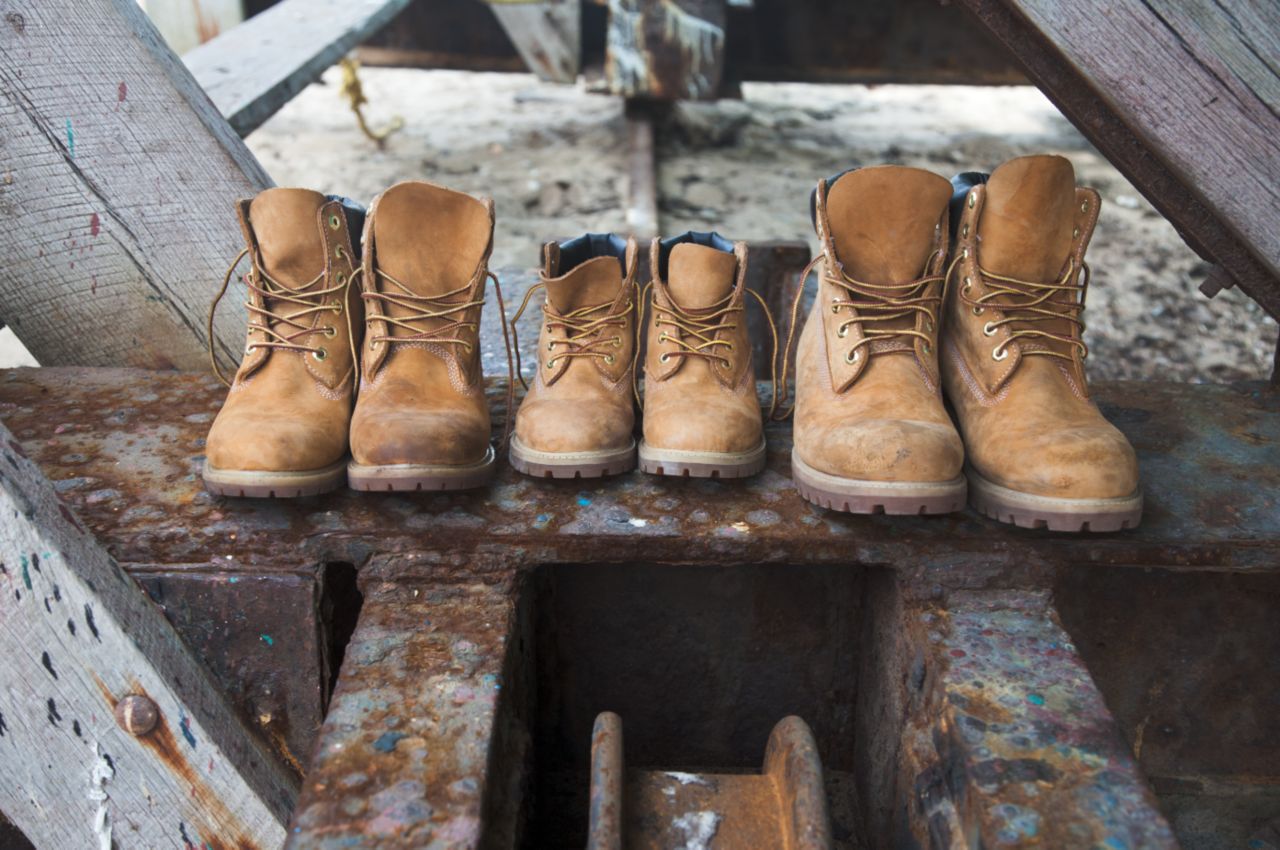
Are Timberland boots good for winter?

Are Timberland boots good for winter?
Timberland makes a range of boots, from rugged work-boots and hiking boots to fashionable streetwear. Four factors make a boot suitable for winter:
- Water resistance
- Insulation
- Grip
- Comfort
Our top pick of winter boots for men:
We will answer the FAQs related to these qualities and more one by one.
Are Timberland boots waterproof?
All of Timberland’s work-boots and hiking boots, including the famous Yellow boot, are waterproof. The uppers are made from leather that is tanned for maximum water resistance, and coated in the factory. The tongue is joined to the boot on both sides to prevent water leakage when stepping in a puddle or shallow stream. Finally, the sole and upper are permanently bonded together to ensure 100% watertightness.
If you’re unsure about whether a boot is fully waterproof, showerproof or not waterproof, look at the individual product description, especially if waterproofness is important to you.
Are they insulated?
Timberland’s outdoor range of boots come with natural and added insulation.
First, the leather itself is a great insulator. With a good pair of socks, most boots will insulate against an average winter’s day in the city.
Many of our boots also come with extra insulation, however. PrimaLoft®️ Eco is made from recycled bottles and provides a super snug feel when you’re out in the cold. We also have a PrimaLoft®️ Down range, using nature’s insulation, which has been keeping people warm for centuries.
Do the soles have good grip?
Timberland’s lug soles are moulded to perfection to produce the optimum shape of grip that makes every step count, especially those that incorporate Vibram® soles for extra traction. As well as the shape, we use tough rubber – often made from recycled car tyres – to ensure the tread keeps its shape over millions of steps. All layers of our soles are bonded together and then permanently cemented firmly to the uppers to ensure your feet stay dry.
Do they provide shock absorption?
The natural springiness of the rubber soles plus the choice of inner materials provides sufficient shock absorption for years’ worth of wear and tear on your ankles and knees. But nobody wants to walk on sponges, so the soles and inners are designed to provide a balance between effective shock absorption and a trueness of step.
Are Timberland boots breathable?
Breathability is essential in a winter boot, as warm, active feet will produce sweat even in the lowest of temperatures. Our leather boots are breathable as nature intended, so ventilation comes in and moisture can escape. But the chemicals we use for waterproofing are also breathable, so they remain watertight even while letting air circulate and water vapour escape.
Can they be worn in the snow?
Because Timberland’s outdoor and working boots are waterproof, insulated, breathable, and have great grip and comfort, they are perfect for snowy conditions. They will provide grip in deep snow and traction in slush and icy water, while also keeping the feet warm and dry.
How do I care for my Timberland boots?
Timberland boots will see you through many a winter. But it’s essential that you look after them, especially if they’re likely to be kept in storage for nine months of the year.
The main enemy of insulation is dampness. Make sure you thoroughly dry your boots out if they have got wet, as some moisture might remain.
Never place them on a radiator or in front of a fire – simply let them dry out at room temperature, as exposing them to too high a temperature can dry out the natural oils and flexibility that are part of leather’s quality.
If your boots are nubuck, our balm is specially designed to keep them looking great and staying watertight, and that helps keep them clean and prolong their lifespan.
If you want to keep them looking new, get into the habit of cleaning them whenever they get dirty – mud and other dirt left to fester can stain your boots. For light dirt, a suede brush and rubber sole brush are best, but a duster will probably do. For tougher dirt, use special leather soap and rinse well after it’s done its job. You might even want to consider buying a dry cleaning kit for a professional finish.
Our favourite women's winter boots:
Good for winter, perfect for summer, and also great for gardening. Take a look at how Alfie Nickerson wears his boots when digging around in the outdoors.